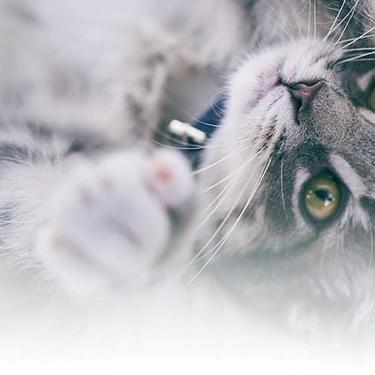
-
Find the right food for your petTake this quiz to see which food may be the best for your furry friend.Find the right food for your petTake this quiz to see which food may be the best for your furry friend.Health CategoryFeatured products
 Adult Light Large Breed Chicken Meal & Barley Recipe Dog Food
Adult Light Large Breed Chicken Meal & Barley Recipe Dog FoodFewer calories for less active large breed dogs
Shop Now Hill's Science Diet Adult Healthy Mobility Large Breed Chicken Meal, Barley & Brown Rice Recipe Dog Food
Hill's Science Diet Adult Healthy Mobility Large Breed Chicken Meal, Barley & Brown Rice Recipe Dog FoodAdvanced nutrition shown to support joint health and improve mobility
Shop Now Adult Large Breed Chicken & Barley Recipe Dog Food
Adult Large Breed Chicken & Barley Recipe Dog FoodSupports healthy joints, lean muscle, and beautiful coat for large breed dogs
Shop NowFeatured products Adult Oral Care Chicken & Brown Rice Recipe Cat Food
Adult Oral Care Chicken & Brown Rice Recipe Cat FoodClinically proven kibble technology to reduce plaque & tartar build-up
Shop Now Adult Sensitive Stomach & Skin Pouch Variety 12 Pack Cat Food, Chicken & Beef, Salmon & Tuna
Adult Sensitive Stomach & Skin Pouch Variety 12 Pack Cat Food, Chicken & Beef, Salmon & TunaCarefully made, gourmet daily nutrition. Tasty chunks with Salmon & Tuna in a decadent gravy. Supports digestive health, nourishes skin and promotes a lustrous fur.
Shop Now Adult Perfect Digestion Chicken, Barley & Whole Oats Recipe Cat Food
Adult Perfect Digestion Chicken, Barley & Whole Oats Recipe Cat FoodHill's Science Diet's breakthrough nutrition supports ultimate digestive well-being & healthy microbiome
Shop Now -
DogCat
- Cat Tips & Articles
-
Health Category
- Weight
- Skin & Food Sensitivities
- Urinary
- Digestive
- Kidney
- Dental
- Serious Illness
-
Life Stage
- Kitten Nutrition
- Adult Nutrition
Featured articles Adopting a Pet: What You Need to Know
Adopting a Pet: What You Need to KnowLearn the basics of adopting a pet, including where to begin and common questions you should ask yourself when deciding which kind of pet is best for you.
Read More Fun Ideas for Kids and Pets This Summer
Fun Ideas for Kids and Pets This SummerOutdoor summer activities with your dog or cat can be fun for kids, too. Learn how they also teach kids responsibility & creates a bond with their pet.
Read More Cat vs. Dog: Which Is the Best Pet for Me?
Cat vs. Dog: Which Is the Best Pet for Me?Learn about important differences between dogs and cats, such as cost & space considerations. These factors can help you decide which pet is best for you.
Read More -


Cats, whether big or small, rely on vocalizations to communicate, and none is more important than the classic meow. It's how a kitten talks to her mom, how she greets her human parents, and how she asks for dinner. So if vocalizing is such an important form of cat communication, then why does she sometimes meow without sound? Is there such a thing as a silent meow?
The Cat's Meow
To put a cat's meow into perspective, there are at least five different types of meows, and the tone and pitch of each meow signals a different emotion, need or want. Your kitty knows exactly which meow or chirp will get her a snuggle or a midnight snack. After living with pet parents for thousands of years, cats have picked up a few pointers on how to get what they want.
According to Nicholas Nicastro, who participated in a cat vocalization research study at Cornell University, cats don't really use "true language," and don't understand what their own meows mean. But, he says, "Humans (or at least well-trained cat people) can assign meaning to sounds with various acoustical qualities because, through long association with cats, we have learned how they sound in different behavioral contexts." A cat's consistent use of specific vocalizations to communicate with her humans illustrates how well cats have adapted to domesticated life and how much humans have learned from their feline friends.


Tasty Tips
The Silent Meow
Why does my cat meow without sound? It's an intriguing question. While researchers know so much about various cat vocalizations and what they mean, the silent meow, when she opens her mouth but no sound comes out, is an outlier of sorts. What's happening during this non-meow?
According to the Smart Living Network, "The occasional 'silent meow' is common among felines and nothing to worry about and some cats do use this more often than others." For many cats, the quiet meow simply is a substitute for a classic meow.
But is the meow really silent? As it turns out, it may be that your cat actually isn't meowing without sound; rather, it's just too quiet for you to hear. "A cat up to three feet away from the origin of a sound can pinpoint its location to within a few inches in a mere six one-hundredths of a second," explains Animal Planet. "Cats also can hear sounds at great distances — four or five times farther away than humans." With such an astounding sense of hearing, a cat instinctively will incorporate those extra sounds into her own communicative signals.
Therefore, if a cat can hear a high-pitched meow well above what a human is capable of hearing, then it's worth the cat's time to make that sound. So, it's possible that she is actually meowing, but she doesn't know that you can't hear it as well as she does.
The Troublesome Meow
Depending on the breed, some cats, such as Siamese, naturally will meow louder and more frequently than others. In fact, excessive vocalization may be a concern with certain breeds, as they never stop talking. Other varieties, including the Abyssinian, are known for being quiet. Learning about your kitty's breed is a great start to understanding and decoding her vocal signals.
Although a quiet meow generally is not a concern, there are instances when you should take action if you notice an atypical vocalization pattern. When a typically vocal cat suddenly becomes quiet or her voice becomes raspy, for example, contact your veterinarian to check for any underlying issue or illness that may be causing the change.
Much of the time, when you notice that your cat is meowing without sound, it's not a cause for concern. The silent meow is one option that your kitty has at her disposal when she's ready to tell you exactly what she wants, when she wants it and how much she loves you.


Christine O'Brien is a writer, mom, and long-time cat parent whose two Russian Blues rule the house. Her work also appears in Care.com, What to Expect, and Fit Pregnancy, where she writes about pets, pregnancy, and family life. Find and follow her on Instagram and Twitter @brovelliobrien.
Related products

Carefully made, gourmet daily nutrition. Tasty chunks with Salmon & Tuna in a decadent gravy. Supports digestive health, nourishes skin and promotes a lustrous fur.

Delicious tender chicken and rice in a mouthwatering sauce with precisely balanced nutrition to support 5 essential building blocks for lifelong health

Clinically proven kibble technology to reduce plaque & tartar build-up

Hill's Science Diet's breakthrough nutrition supports ultimate digestive well-being & healthy microbiome
Related articles

Provide the best possible treatment for cats with sensitive skin by spotting the signs, knowing the causes, and understanding the remedies. Learn more now.

Get helpful information on proper feline oral healthcare and why it's so vital to take care of your cat's teeth.

Obesity affects more than 30 percent of cats in America. Learn how you can properly feed and exercise your cat to improve its weight management.

Understand the symptoms of a chronic upset stomach in your cat, and learn how to help sooth their discomfort.

Put your cat on a diet without them knowing
Our low calorie formula helps you control your cat's weight. It's packed with high-quality protein for building lean muscles, and made with purposeful ingredients for a flavorful, nutritious meal. Clinically proven antioxidants, Vitamin C+E, help promote a healthy immune system.
Put your cat on a diet without them knowing
Our low calorie formula helps you control your cat's weight. It's packed with high-quality protein for building lean muscles, and made with purposeful ingredients for a flavorful, nutritious meal. Clinically proven antioxidants, Vitamin C+E, help promote a healthy immune system.


